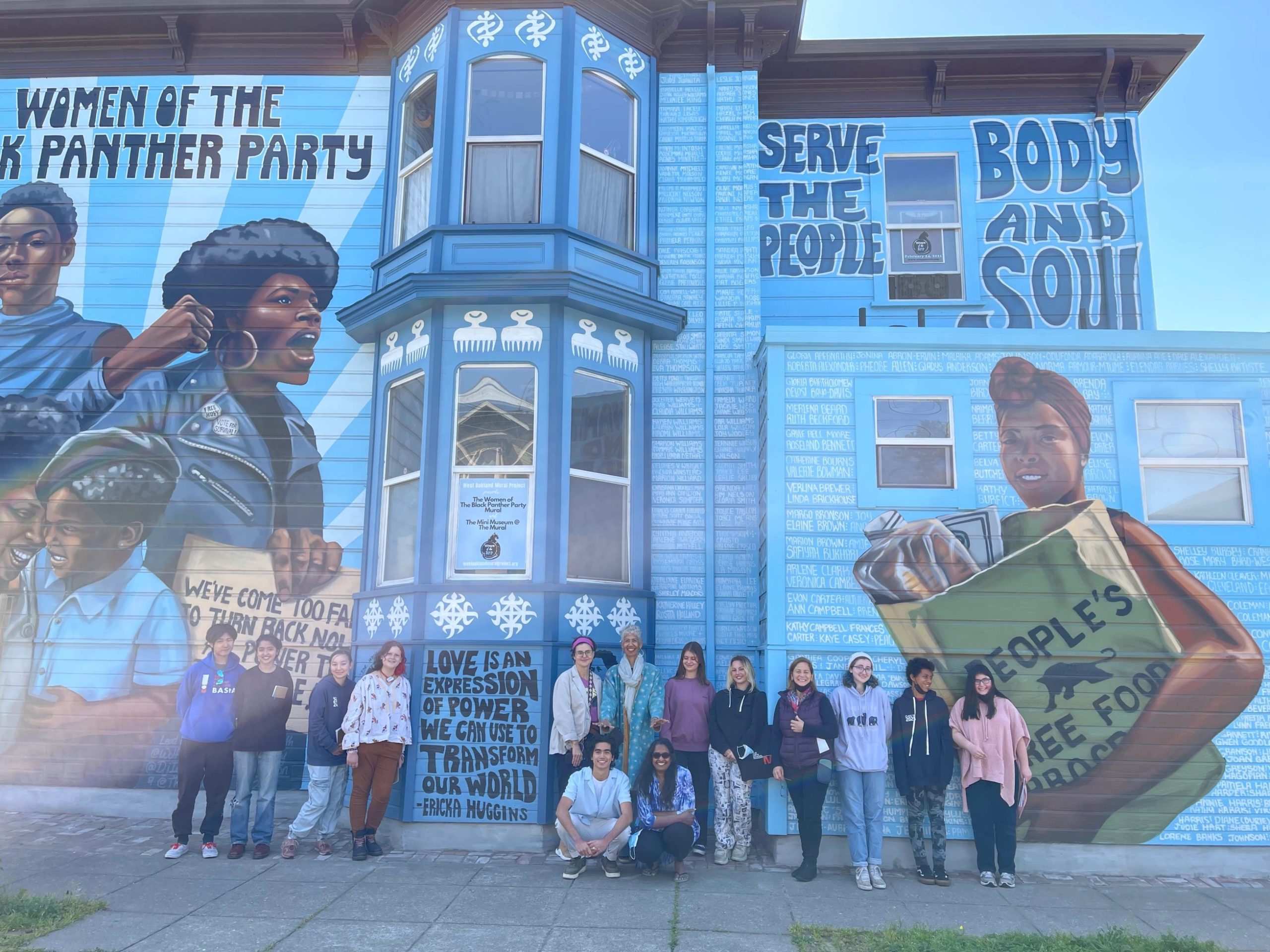
EI Week: Exploring Bay Area Diversity
by Dylan Lee | WSP Class of 2023
Experiential Interdisciplinary Week (better known as EI Week) is a week-long engaged learning process in which high school students at WSP “learn by doing”. The planning of EI Week starts in winter when high school faculty and students submit proposals for workshops based on the theme that WSP adopts to explore as a whole school community. This academic year, the school established “togetherness” as the appropriate theme when our school community transitioned back to campus for in-person learning. EI Week learning activities can include, but are not limited to, a hands-on learning approach, day and overnight trips, field explorations, guest speakers, community service, art, music, performances, and so forth.
The workshop in which I participated was titled “Exploring Bay Area Diversity ” and the main intention was to bring more awareness that would give students a platform to discuss the quality of equity and actual representation of Bay Area communities by looking through the intersectional lens on social issues.
A group of eleven students and two faculty advisors had several planning sessions and discussions to form what we envisioned the week would be like for us to bring the proposal into a reality. In these meetings, our group members began to brainstorm, discuss and disagree, collaborate and combine ideas, lead and follow each other until we arrived at the basic framework of what our group would be doing together for a week. Basically, the piece that stood out for most of us was the challenge to visualize or verbalize intersectionality.
Eventually, we shifted our focus to include all types of diversity while promoting and celebrating inclusive environments that strive to make everyone living in the Bay Area feel like we belong here. Our group was clear that we wanted to incorporate community service, explore historical aspects of migration into the Bay Area, deepen our understanding of racial equity and systemic issues, eat good food, celebrate art, music and culture of various communities, and spend time capturing our experiences through photography, journaling, poetry, story-telling, painting, drawing, learning, creating, and questioning.
The biggest take away from this experience is that our group learned that there are pockets of segregation across different counties. There are also the invisible communities who have very little access to healthy food, proper shelter, education, health care, childcare, employment issues, and equal wages, as well as immigrant rights. Our exploration clearly brings out how segregated the entire Bay Area is. That segregation impacts economic outcomes: a racial segregation that leads to economic segregation. The housing crisis in the Bay Area impacts all of us in its own way as well. The most humbling moment of this entire experience was when we met with Erika Huggins for an entire afternoon while she led our group through the streets of West Oakland and shared her biography and history of the Black Panther Party. With deep wisdom and courage, she conveyed that we should try to talk about these things in a broad framework of humanity. How do we treat our fellow human beings?
Othering certainly is a mechanism by which we are trying to segregate people: ‘us’ versus ‘them.’ So, it’s important that our generation look at this moment through the lens of ‘othering and belonging,’ and see that if we have a more integrated community, we are actually lifting up everybody. We are lifting up the entire society. We are all living together.
Other EI Week workshops looked at Food Systems, went on various Outdoor Adventures, and explored sustainable fashion.
Dylan Lee is a regular contributor to the Waldorf Chronicles, a newsletter run by WSP high school students.
